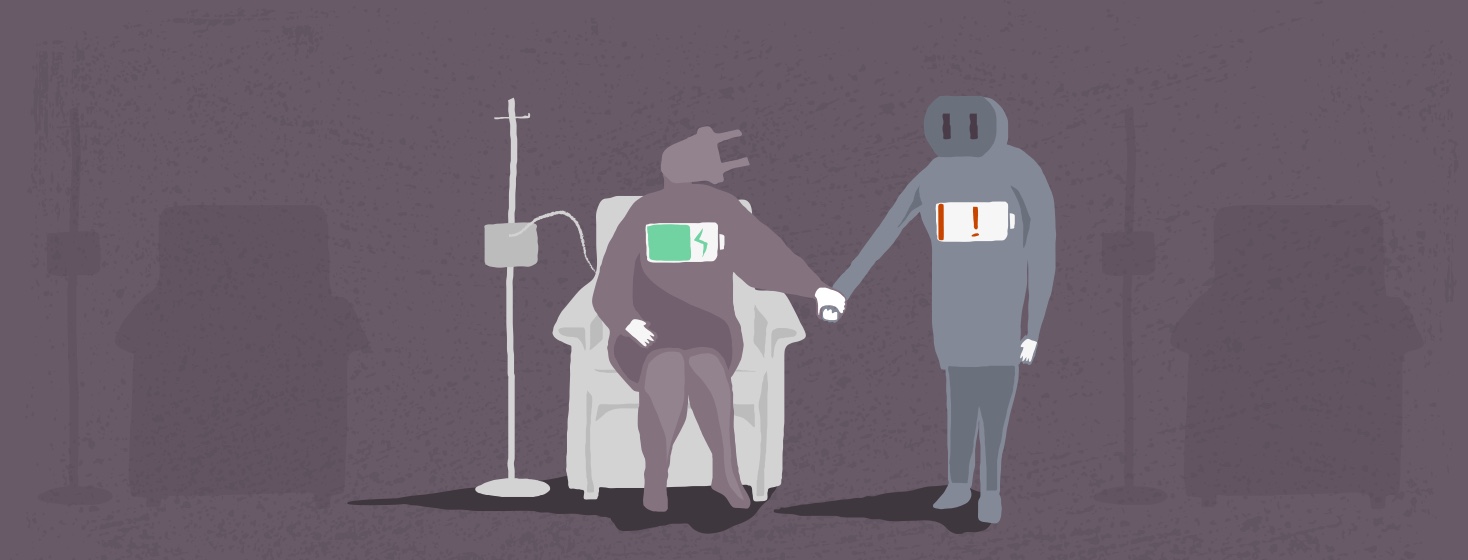Caregivers Should Be Allowed To Grieve
The all-important person in the life of someone with advanced prostate cancer with extensive bone metastasis stage four is normally a caregiver. A caregiver is normally a close family member, friend, or a spouse. Over the course of my three and a half years of cancer treatment, I have heard many cancer caregivers simply lose faith and abandon their loved one to the disease.
An emotional rollercoaster
My wife, Cristy has been my most trusted ally in this battle against the unrelenting aggressor known as prostate cancer. To say that all has been a proverbial bed of roses would simply be untrue. Cristy and I have shared many a good times, bad times, laughs, cries, and verbal battles. It is a rollercoaster ride in the best of times, not to even mention the worst of times.
As a cancer patient, I always try to exhibit the most positive attitude I can muster at the time. Positivity is at times a very hard sale when it comes to the daily struggles associated with cancer treatment.
Caregiver struggles
I began to notice a pattern developing the longer I stayed in treatment and attended all my scheduled appointments. The longer I was in the program, the more I witnessed many caregivers falling by the wayside and leaving their loved one to battle alone versus cancer. For many caregivers, it may have been the financial burden that comes with the fight. For others, it may have been the physical and emotional issues that have done them in.
I would never lie and say that Cristy and I never argue or fight. We have many heated discussions and verbal explosions as we navigate this lonely road together. There is no proven road map for all cancer patients. Many learn by trial and error, while others never learn anything during the process.
Draining finances
Financial woes are going to happen. When they hit the hardest, you will find out what kind of caregiver you have in your personal battle. Even though I have become accustomed to saying, “cancer is the root of all evil,” it remains true for many that “money is the root of all evil.”
Nothing stops a marriage dead cold in its tracks like financial hard times. I have noted that when the money hits the road, many are not far behind. One curse of this dreaded disease of cancer is the financial obligations that come along with just simply trying to stay alive. I will use my own experience as case and point.
At the time of my initial diagnosis, my family and I were enjoying the best financial times of our lives. And just as quickly as the success arrived, it left with one simple CT scan on May 22, 2017. Our financial security was gone with a quick visit to our local hospital’s ER. We went from a monthly income of around $5,000 to a mere $1,572 monthly social security disability (SSD) check, in addition a $900 monthly retirement check, and a $327.72 long-term disability check.
Using a calculator, one can quickly add that we were now trying to pay all our bills and responsibilities from $2,799.72. Actually, not even that much, as the retirement check came in at only $675 as taxes had to be withheld. So let’s say $2,574.72. This totaled roughly around $2,500 less a month.
Meeting halfway
A majority of caregivers will fight the good fight, but many call it quits on their cancer-fallen partner. I can honestly testify that The Lord has blessed me with a miracle and her name is Cristy, my wife and my caregiver.
It is not all on the caregiver; the cancer patient must realize they must be willing to meet the caregiver at least halfway. Caregivers must be allowed to show emotions, state facts, and grieve the process. Remember, my fellow prostate cancer patients, it is not all about you. It is in fact, at times, less about you and more about your family.

Join the conversation